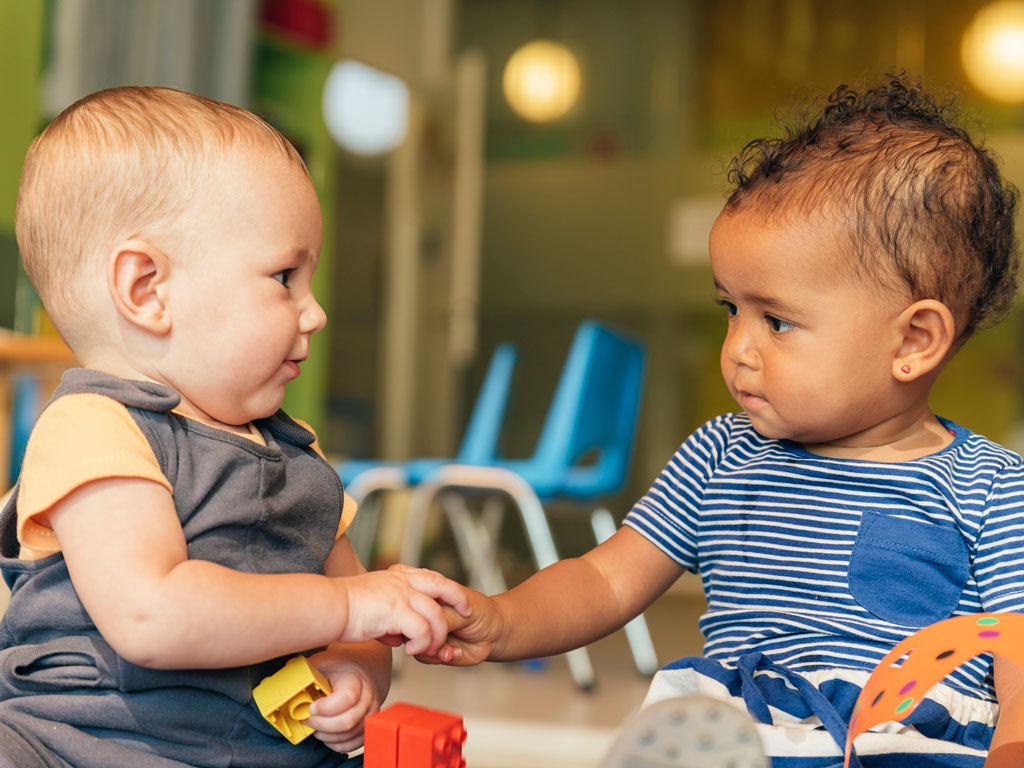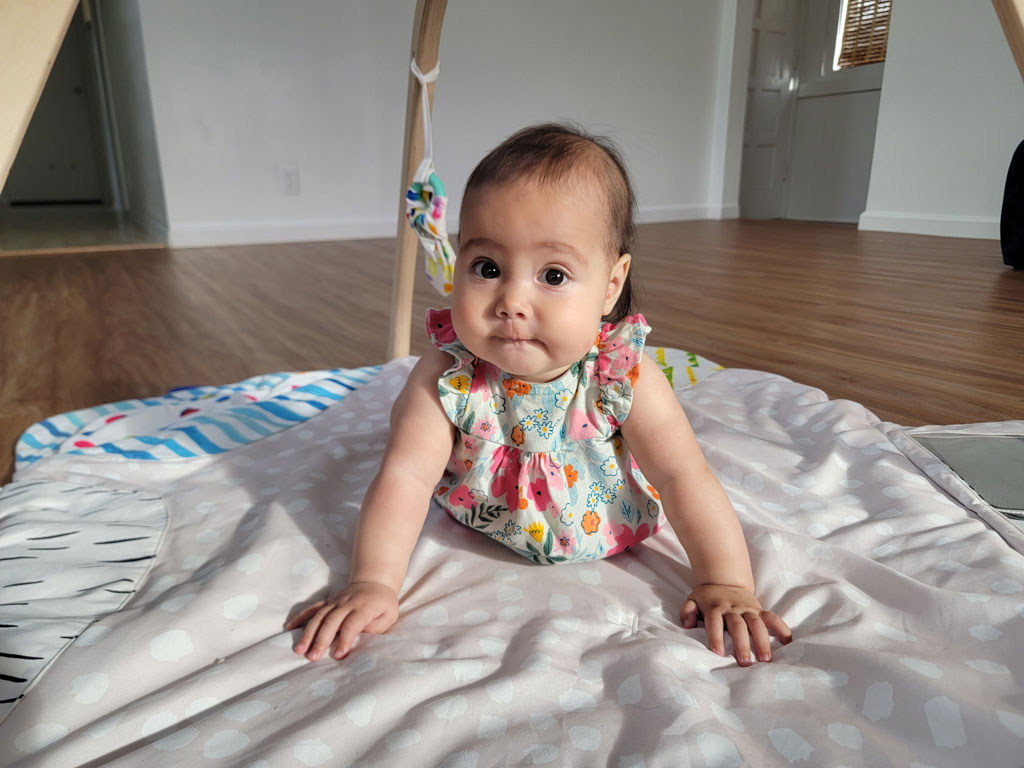by Dr. Vinson Diep and Stephanie Lopes
My baby smiled! Now he grabs his toys! Wow, she is crawling and saying ‘mama’!
Every new sound, facial expression or movement is an exciting step in a child’s journey of growth. A child’s hardworking mind and body seems to acquire a new social, language, cognitive or physical skill each day. And these milestones matter, as they offer crucial information about a child’s development.
“Milestones are important because they allow us to be thorough and examine all aspects of a child’s development,” explains Dr. Vinson Diep, trusted pediatrician with an office at Kapiolani Medical Center for Women & Children. “They also act as a checklist that helps pediatricians and parents track their child’s growth and development.”

Milestones from Two Months to Two Years Old
What should my child be able to do? When should he reach his next milestone? Milestones are helpful in ensuring a child is developing at a rate along with most children of the same age (at least 75%, according to the Center for Disease Control and Prevention (CDC) and American Academy of Pediatrics), and a little more information about each goal can assist in enabling a child to accomplish each momentous mark.
2 months. Sweet two-month-olds begin to babble and coo, and enjoy gazing into their parent’s face and watching adults on the move. During tummy time, they hold their head up.
4 months. At four months, get ready for the chuckles and screams and exploration of their hands, including starting to grasp toys. During tummy time, four-month-olds typically can push up onto their elbows and forearms.
6 months. The laughter continues along with blowing raspberries and making all sorts of sounds. Six-month-olds begin to sit with support and push up with straight arms on their tummies – often while reaching for that favorite toy.
9 months. The laughter and smiles are in abundance at nine months, and sounds of ‘mama’ and ‘baba’ might be heard. Newfound strength and hand-eye-coordination enable moving toys from one hand to the other and sitting without support.
1 year. Congratulations! Your baby has made it to one year, and now they are on the move – standing and walking with support and waving ‘bye-bye’! Cognitively, a one-year-old child can put an object in a container and look for hidden toys.
15 months. Clap! Hugs! Kisses! Fifteen-month-olds can typically show affection and are also starting to form new words (“ba” for ball, “da” for dog). Independence is also beginning; these toddlers can take steps on their own and use their fingers to feed themselves.
18 months. By 18 months old, a child can typically say around ten to 15 words, according to Dr. Diep, and they also begin to scribble. Walking and climbing are the norm these days.
2 years. Do you remember when you saw your child’s first smile? Look how much they have grown these past two years! Now they can kick, run, eat with a spoon and push buttons on a toy. Also, they can say two-word sentences like, “more please,” and react to others’ emotions.
Do you want to see the entire milestone checklist from the CDC and the American Academy of Pediatrics? The checklist can be downloaded at cdc.gov under “Milestones,” and they also have a Milestone Tracker App.

How can I help my child make milestones?
Once a parent knows the milestones at each age, it is easier to track and assist in their development.
First, it is important to visit your pediatrician for every well-child check, as this is “an opportunity to ask about development,” says Dr. Diep. “Pediatricians usually ask parents about certain milestones based on the age of the patient at that visit. For example, at nine months, we may ask families if their child is able to stand up by him or herself, or if they can ‘cruise’ (which means walking while holding onto something like walking along the couch). We use these milestones to help guide us in our assessment of the patients, and these developmental screens happen during the visit.”
A pediatrician can give more detailed information on what milestones to expect at every age, catered to your individual child’s development.
For physical development milestones as well as cognitive milestones, giving your child enough time to play can assist in his or her growth.
Dr. Diep expands, “Early milestones such as rolling and sitting can be assisted by making sure babies get enough tummy time when they are awake. Being on their tummy allows babies to develop neck strength and head control, which assists in rolling and sitting. If babies are awake and being watched by parents or caregivers, it is a good opportunity to allow them to move their bodies.”
For social and language milestones, the parent or caregiver is the child’s best teacher. “We often encourage parents to stay away from screen time (Ideally no screen time for children younger than two years old.); instead, we encourage parents to read, talk, sing, and interact with their child daily,” illuminates Dr. Diep. “We also tell parents to give names to objects before giving it to their child (i.e., if the child points to a ball, tell the child, “This is a ball. Say ball,” before giving it to them).

What should I do if my child is missing a milestone?
“Keep in mind that the milestones only serve as a guide for development; they are not absolutes,” reminds Dr. Diep. “So just because your child doesn’t roll at four months, it’s not necessarily time to sound the alarm.”
Remember that you know your child best, and if you have any concerns, speak with your pediatrician, who can do additional developmental screenings and provide more resources, if needed.
If you would like to speak more with Dr. Diep, call 808-945-9955 or email pediatrics@doctordiep.com.





